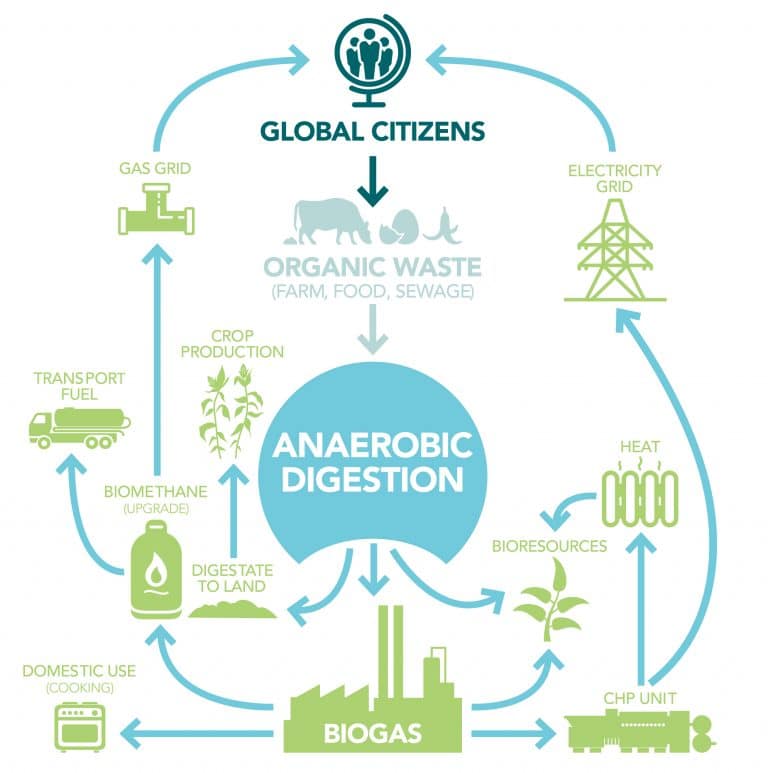Why biogas?
Whilst first used by the Assyrians to heat bath water in 900BC, the exceptional potential of this simple yet highly sophisticated natural technology is only just starting to get the recognition it deserves, three thousand years on.
In today’s world, where job creation, economic growth, energy generation and food production must all be achieved at the same time as drastically cutting climate change emissions, few technologies have the ability to make such a huge contribution to all these areas worldwide.
Our goal is to demonstrate to all – and in particular the governments and municipalities developing the policies to meet their country’s energy needs, Climate Change commitments and UN Sustainable Development Goals – that they need to put biogas at the heart of those plans.
Biogas can:
- Reduce global climate change emissions by 20%
- Become a global sustainable industry worth £1trn
- Create millions of jobs, many in rural areas
- Deliver home grown, distributed, baseload, storable green energy
- Treat wastes that would otherwise produce harmful methane emissions, recycling them into valuable green energy, biofertiliser and biochemicals
- Decarbonise difficult areas, such as Heavy Good Vehicles and agriculture
- Make substantial contributions to [9] of the 17 UN Sustainable Development Goals:
– UN Sustainable Development Goal 2: End hunger, achieve food security and improved nutrition and promote sustainable agriculture
– UN Sustainable Development Goal 3: Ensure healthy lives and promote well-being for all at all ages
– UN Sustainable Development Goal 5: Achieve gender equality and empower all women and girls
– UN Sustainable Development Goal 6: Ensure availability and sustainable management of water and sanitation for all
– UN Sustainable Development Goal 7: Ensure access to affordable, reliable, sustainable and modern energy for all
– UN Sustainable Development Goal 9:Build resilient infrastructure, promote inclusive and sustainable industrialization and foster innovation
– UN Sustainable Development Goal 11: Make cities and human settlements inclusive, safe, resilient and sustainable
– UN Sustainable Development Goal 13: Take urgent action to combat climate change and its impacts
– UN Sustainable Development Goal 15: Protect, restore and promote sustainable use of terrestrial ecosystems, sustainably manage forests, combat desertification, and halt and reserve land degradation and halt biodiversity loss

What is Biogas?
A naturally occurring biological process similar to that which takes place in the stomach of a cow, anaerobic digestion is the simple, natural breakdown of organic matter that occurs in the absence of oxygen into biogas (carbon dioxide and methane) and organic fertiliser called digestate.
By recycling organic wastes such as food, farm and sewage wastes, energy crops, crop residues, grasses, seaweeds and algae, anaerobic digestion extracts the energy in the form of biogas and turns the rest into biofertiliser, replacing the need for energy intensive chemical fertilisers, and/or higher value bio-products and chemicals.
Able to produce renewable energy constantly in the form of a gas, biogas can deliver energy in the form most needed – whether that’s baseload electricity and heat, or gas to fuel those areas that are harder to decarbonise, such as heating homes or fuelling heavy goods vehicles.
With the flexibility of scale to design a plant run from the dung produced by two cows to one recycling 500,000mt of the first world’s food waste or sewage, biogas can support industries of any size the world over.

